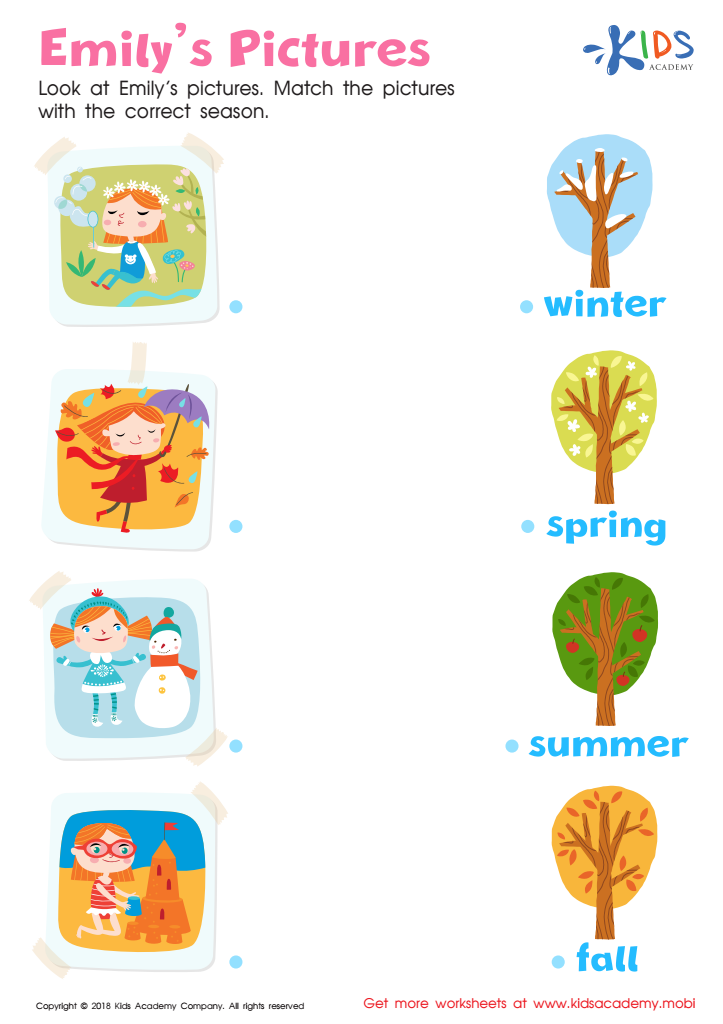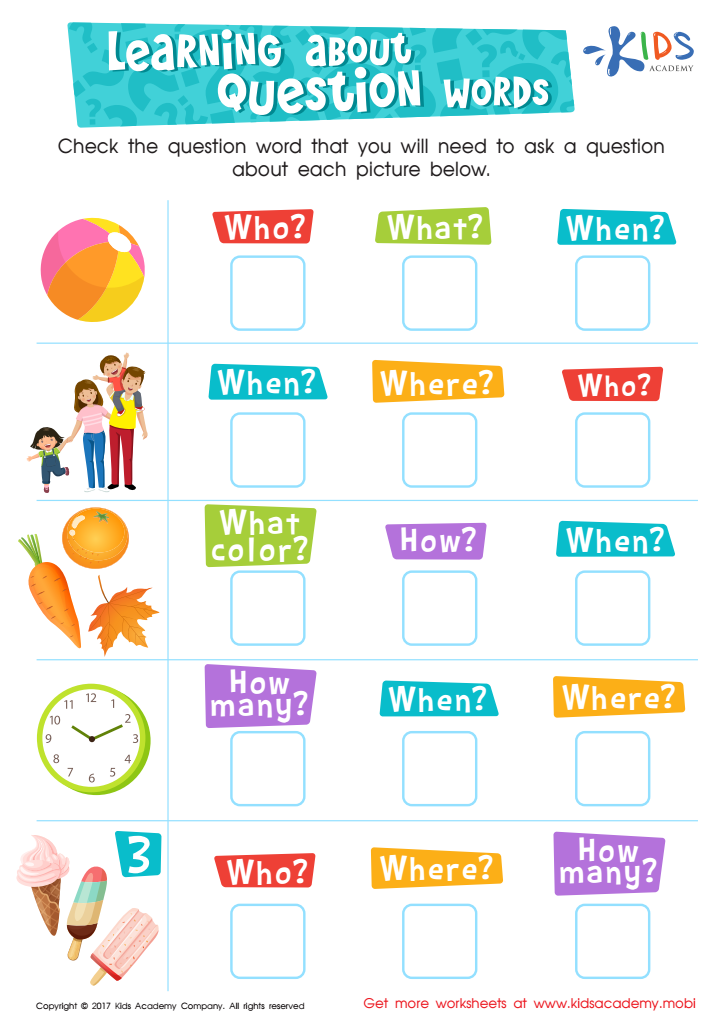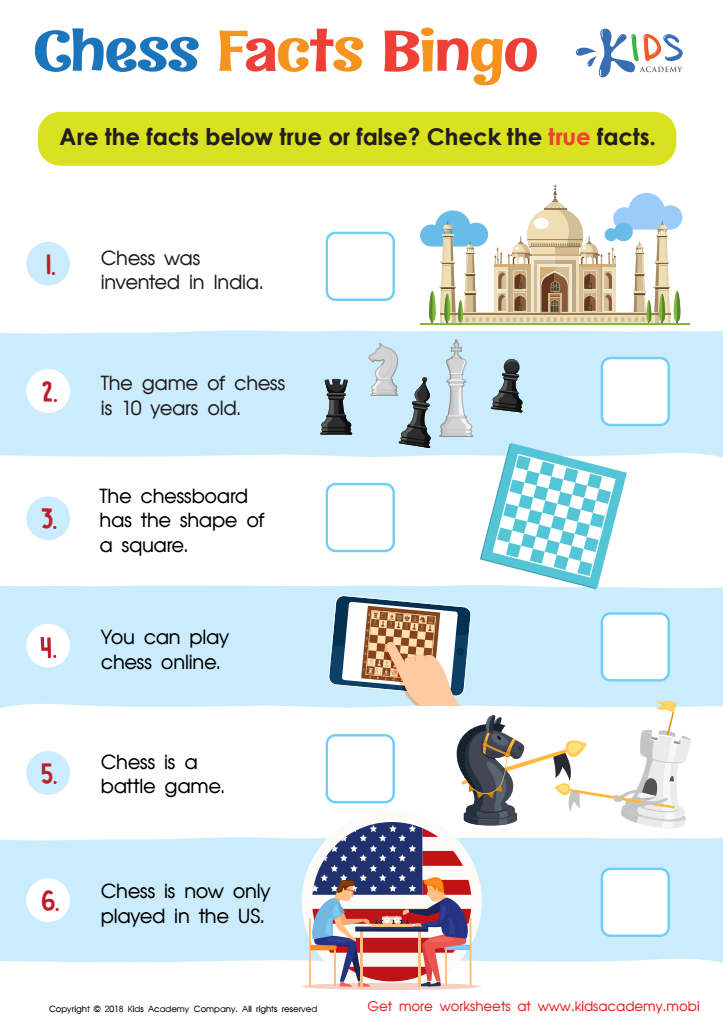Reading comprehension Extra Challenge Matching Worksheets for Ages 4-7
3 filtered results
-
From - To
Elevate young readers' skills with our "Reading Comprehension Extra Challenge Matching Worksheets" designed for ages 4-7. These exciting and educational worksheets are perfect for boosting your child's reading comprehension through engaging activities that promote critical thinking. Each worksheet provides fun matching challenges that enhance vocabulary, improve memory, and develop understanding of texts. Ideal for at-home practice or classroom use, these resources make learning enjoyable and effective. Help your child progress confidently in their reading journey—explore our carefully curated selection of worksheets today and watch as they build foundational skills with enjoyment and ease.


Emily's Pictures Worksheet


Learning about Question Words Worksheet


Chess Facts Bingo Worksheet
Reading comprehension is fundamental to a child's academic success and lifelong learning, and introducing extra challenge matching activities for children ages 4-7 can be particularly beneficial. At these early ages, children are developing the foundational skills of language, decoding, and comprehension. Extra challenge matching activities not only make reading fun and engaging but also strengthen several cognitive abilities and linguistic skills simultaneously.
By matching words to pictures, phrases, or other words, children learn to make associations and build relationships between concepts. This nurtures their ability to understand and recall information, key components of reading comprehension. These activities can also help expand vocabulary by exposing children to new words and their meanings in a context that they can understand.
Moreover, incorporating extra challenges fosters critical thinking and problem-solving skills. When children are encouraged to go beyond simple rote learning, they develop a deeper understanding and gain confidence in their reading abilities. This boosts their enthusiasm for reading and sets a positive cycle of continuous improvement and enjoyment.
Parents and teachers should care about these activities because they build a solid foundation in literacy that supports all other academic learning. Investing in these early stages prepares children not only for higher educational demands but also for effective communication and lifelong success.
 Assign to My Students
Assign to My Students
















